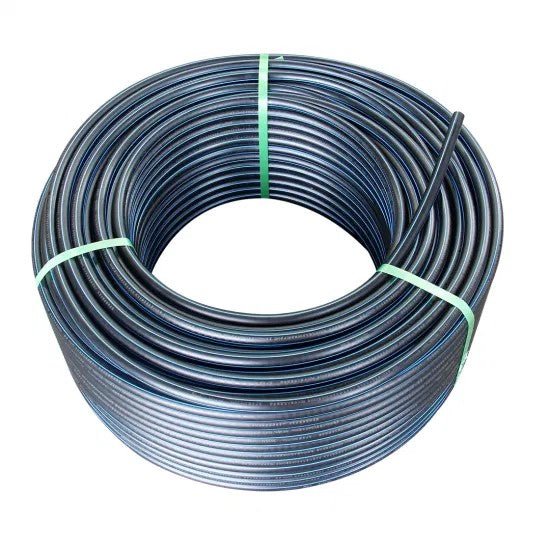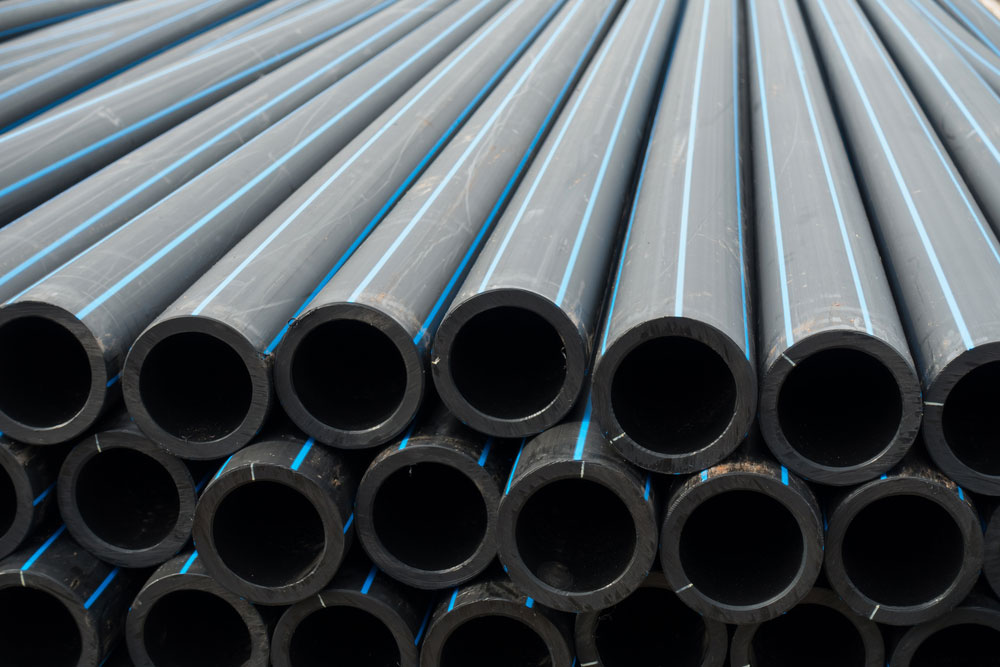Common Questions About Texas hdpe pipe manufacturer and Their Products
Recognizing the Trick Advantages of HDPE Pipeline for Water and Wastewater Administration
Using HDPE pipe in water and wastewater administration offers various benefits that warrant consideration. Its extraordinary resilience and lengthy lifespan make it a preferred choice for lots of tasks. Additionally, the product's resistance to rust and chemical damage enhances its dependability in numerous settings. The benefits expand beyond simply durability and resistance. American Plastics HDPE Pipe for Oilfield. Exploring its cost-effectiveness and ecological impact reveals much more engaging factors for its extensive adoption in modern-day infrastructure
Phenomenal Durability and Long Life

HDPE pipeline sticks out for its extraordinary toughness and long life, making it a recommended selection in water administration systems. Constructed from high-density polyethylene, these pipelines can stand up to substantial pressure and stress and anxiety, making certain reliable performance in time. Their robust nature allows them to sustain severe environmental problems, consisting of temperature level fluctuations and dirt movements, which can trigger various other products to fail.
The life expectancy of HDPE pipes frequently surpasses half a century, supplying a cost-effective service for communities and sectors alike. In addition, the material's lightweight properties simplify installment, reducing labor costs and timeframes. This longevity minimizes the requirement for regular repair services or substitutes, even more improving its financial appeal.
In water administration applications, the dependability of HDPE pipelines means fewer disturbances and improved service connection, making them essential to sustainable framework advancement. The mix of longevity and long life strengthens HDPE's role as a foundation in reliable water management solutions.

Resistance to Rust and Chemical Damages
While numerous materials yield to rust and chemical damages gradually, HDPE pipelines display amazing resistance, making them optimal for numerous water management applications. This resilience stems from the molecular structure of high-density polyethylene, which is inherently non-reactive and does not corrode like steels or weaken from direct exposure to harsh chemicals. Because of this, HDPE is extremely efficient in settings with aggressive substances, such as wastewater systems that may contain acids, bases, and natural solvents.
Furthermore, HDPE pipes can withstand environmental elements such as soil acidity and saline problems, further improving their suitability for varied applications (American Plastics HDPE Pipe for Oilfield). Their capacity to preserve architectural stability with time reduces the danger of leaks and failures, which is vital in making sure the safety and dependability of water distribution and wastewater management systems. Subsequently, the resistance to rust and chemical damages considerably adds to the general performance and long life of HDPE piping remedies
Cost-Effectiveness and Economic Advantages
When considering the monetary ramifications of water administration systems, the cost-effectiveness of HDPE pipelines comes to be apparent. These pipelines use lower installation and maintenance expenses compared to traditional materials like metal or concrete. Their lightweight nature streamlines transport and setup, causing minimized labor expenditures. Additionally, HDPE pipes display a lengthy lifespan, often going beyond half a century, which converts to fewer substitutes and lasting cost savings.
The resistance of HDPE to corrosion and chemical damage minimizes the need for costly repair work and replacements. The pipes likewise sustain effective water circulation, lowering energy costs connected with pumping systems. By alleviating leaks and read more water loss, HDPE pipes add to significant financial advantages for municipalities and industries alike. Overall, the first investment in HDPE piping can produce significant financial returns over the life expectancy of the water management system, making it a sensible option for sustainable facilities development.
Ecological Sustainability and Minimized Effect

Convenience and Flexibility in Setup
Because of their distinct residential properties, HDPE pipelines offer remarkable adaptability and adaptability in installation, making them ideal for a variety of applications. Their light-weight nature enables less complicated handling and transport, lowering labor prices and installment time. HDPE pipes can be bent and shaped to fit different terrains and project demands, which is specifically helpful in testing settings.
Furthermore, their resistance to rust and chemical damages allows for installment in diverse setups without the requirement for specialized safety coatings. The capacity to fuse joints develops a constant, leak-free system, enhancing the overall stability and dependability of the installation. HDPE's flexibility additionally suits ground movement, lowering the danger of damage in locations susceptible to shifting dirt. Generally, these qualities make HDPE pipelines not only functional however also a recommended option for water and wastewater management systems.
Often Asked Inquiries
How Does HDPE Pipe Compare to PVC in Water Management Applications?
HDPE pipe supplies superior flexibility, resistance to rust, and resilience compared to PVC. Its lighter weight assists in less complicated installation, while its long life expectancy minimizes substitute prices, making HDPE a recommended selection in water monitoring applications.
What Is the Life-span of HDPE Pipes Under Common Conditions?
Under common conditions, HDPE pipelines can have a life-span varying from 50 to 100 years. Their resilience and resistance to rust add to their lasting efficiency in numerous applications, making them a trustworthy option for framework.
Are HDPE Piping Recyclable After Their Life Span?
Yes, HDPE pipelines are recyclable after their life span. Pipe Manufacturing Midland TX. They can be processed and repurposed into new products, considerably lowering environmental effect and promoting sustainability within the industry, making them a green option for piping solutions
What Is the Setup Process for HDPE Piping?
The installment procedure for HDPE pipelines includes website prep work, trenching, pipeline blend or mechanical signing up with, backfilling, and stress testing. Appropriate techniques ensure a long lasting and efficient system for carrying water and wastewater properly.
Can HDPE Piping Be Utilized for Both Potable and Non-Potable Water Systems?
Yes, HDPE pipes can be made use of for both safe and clean and non-potable water systems. Their flexibility, toughness, and resistance to deterioration make them suitable for numerous applications, making sure secure and efficient transport of water in different contexts.